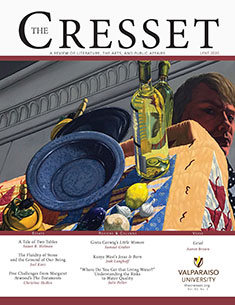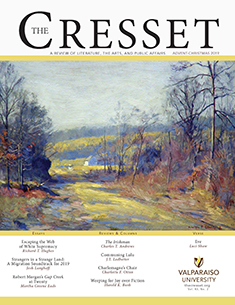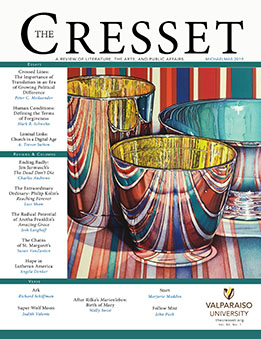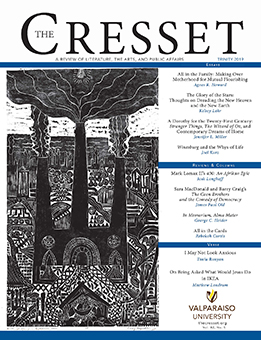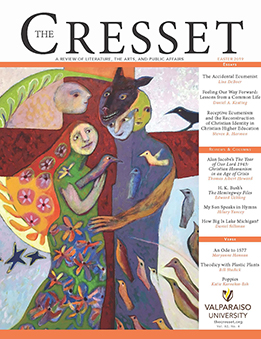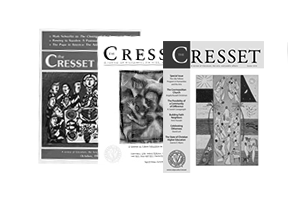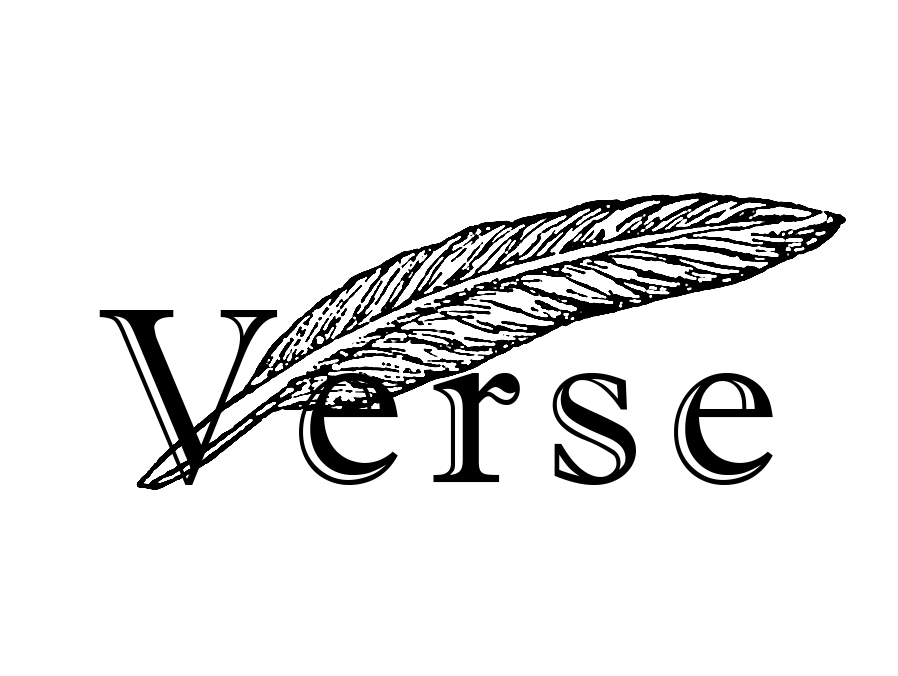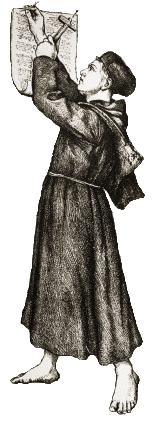Oliver Stone is Hollywood's reigning paradox. He's a rebel with many causes, and all the while he's the system's darling. One might expect a moviemaker with such a persistently political agenda to have to work in independent production and exhibit in art houses and on the festival circuit. But Stone's pictures are bankrolled by the studios and regularly play the nation's malls. His films are unabashedly and stridently polemical, yet they most often perform well at the box office. As I write this, his Natural Born Killers is the most popular movie in America.
Stone is paradoxical in other ways as well. He stands to the far left politically, but in his ideological inflexibility and self-righteous absolutism he's a moral right-winger. He takes on the most complicated subjects— Vietnam, Wall Street, the Kennedy assassination—and reduces them to one-size-fits-all formulas. He is a true master of the subtleties of his medium, and yet his stories are most notable for their oversimplification and relentless heavy-handedness. In sum, his movies are inevitably fascinating and invariably frustrating, never more so than his current Natural Born Killers and his ten-month-old Heaven and Earth, which has recently been released on video.
Reminiscent of the murderous rampage by Charles Starkweather and Caril Fugate in the 1950s and therefore of other films based on that event (the best of which remains Terrence Malick's 1974 Badlands with Sissy Spacek and Martin Sheen), Natural Born Killers is the story of a young couple on the run, leaving a trail of bloody mayhem in their wake. Woody Harrelson and Juliette Lewis star in Natural Born Killers as Mickey and Mallory Knox, the unstable progeny of two dysfunctional families. Mickey and Mallory meet, fall in love, pronounce themselves married and proceed to murder just about everybody luckless enough to cross their path, including Mallory's parents. Mickey and Mallory's crimes are so flamboyant in their senselessness, and the media coverage of their flight is so lurid, that the murderers become the darlings of tabloid TV, strange demon heroes in a culture addicted to the shock of sensational violence. Eventually Mickey and Mallory are captured by slimy police detective Jack Scagnetti (Tom Sizemore) and incarcerated in the prison of warden Dwight McClusky (Tommy Lee Jones). While awaiting trial, Mickey is interviewed on live television by Australian journalist Wayne Gale (Robert Downey, Jr.), and Mickey's remorseless insouciance serves to spark a riot among his fellow inmates who are watching in the prison dining room. In the chaos of the riot, Mickey and Mallory manage to escape with only Gale and his camera and thus the eyes of the world for company.
Stone isn't interested in telling a conventional story here, and doesn't bother with such niceties as a cohesive plot or in-depth character development. Flashbacks establish that Mickey and Mallory were abused as children, and as adults it's clear they don't give a damn about right and wrong. But their frenzy of murder follows no course, sustains no pattern. After Mallory's parents, we don't know who they kill in what order nor what clues Scagnetti seizes upon to track them down. Rather than building narrative drive, Stone is primarily interested in drawing connections between violence and the media in American society.
To such an end, the style of this film becomes its substance. And a striking style it is. Throughout, Stone cuts from regular color cinematography to black and white, from normal speed to slow motion and stop action, and intercuts live action with animation. The fevered nightmare result, sort of Fellini's Roma meets David Lynch's Blue Velvet, is purposely disorienting but ultimately numbing. When Stone mounts his camera to the back of a slow-motion bullet, he's making satirical comment about Robin Hood: Prince of Thieves or Sniper which employed such effects seriously. When he includes a black comic splatter scene in the early going, he questions the impact of such scenes in the works, say, of Brian De Palma or Martin Scorsese.
Most daringly, Stone turns America's sitcom world upside down in a sequence he titles "I Love Mallory" which dramatizes the squalid world of Mallory's rearing. Her monstrous, lumpy-faced father (Rodney Dangerfield) is Archie Bunker as incestuous pedophile. With a laugh track roaring at every sexual innuendo father directs at daughter, Stone asks us to contemplate how much America has deluded itself with its depiction of safe suburban worlds where incidental concerns of bright, decent children are quickly set straight through the wisdom of all-knowing, benign parents. Later, Stone aims his satirical shotgun less obliquely. Wayne Gale's "American Maniacs" series is an obvious reference to such programs as "America's Most Wanted," "Hard Copy," "Inside Edition," and "A Current Affair." Gale's bombastic reporting, in the accent of "Lifestyles of the Rich and Famous" host Robin Leach, makes obvious Stone's point about how much TV revels in the horrible. In one scene from "American Maniacs," Gale interviews a group of teenagers, one of whom confesses that "I don't approve of serial killing or anything, but if I was going to be a serial killer, I'd want to be like Mickey and Mallory." Gale is driven not by any desire to enlighten or edify but only to manipulate the sensational for maximum ratings. Thus, after "American Maniacs" makes Mickey and Mallory into national figures, Gale arranges to air his live jailhouse interview with Mickey right after the annual ratings Goliath of the Super Bowl.
The targets for Stone's satire are endless and omnipresent. First-rank television journalists like Diane Sawyer and Stone Phillips broadcast interviews with Charles Manson and Jeffrey Dahmer. Television networks produce movies of the week about Lyle and Erik Menendez, Amy Fisher, Aileen Wuornos, and David Koresh. One or more about O. J. Simpson are surely on the way. Implicitly, Stone suggests there was a time we'd have turned away from such material but that today we've lost a reverence for life we once possessed. It's a debatable point. Public hangings used to be the American village's most popular spectacle. But he's right that we eat this stuff up in the same shameful, voyeuristic fashion that we do nude photo spreads of Tonya Harding, Gennifer Flowers, Donna Rice, Elizabeth Ray and Jessica Hahn who have achieved their national notoriety by trying to maim an Olympic skating opponent and for conducting adulterous affairs, respectively, with a President, a Presidential candidate, a Congressman and a pastor.
But simply because Stone's targets are worthy of the satirical arrows he fires in their direction, doesn't mean that he necessarily hits any bullseyes. Natural Born Killers is guilty of that which it condemns. It makes heroes of the villains and nonentities of the victims. Typical of Stone's knee-jerk antiauthoritarianism, the director's real villains become Scagnetti, whose vile character is an insult to the worst of American policemen, and Warden McClusky, who has seemingly drifted into this movie from the most depraved incarnation of Women Behind Bars. The picture is careless with narrative detail. It makes little sense when Mickey and Mallory set Mallory's mother afire, for instance. And it's impossible to make sense of the jumpy sequence in which the killers take a female hostage. Comparably, the passage in which Mickey and Mallory murder an Indian snakehandler (Russell Means) is a murky mess. Moreover, with its blaring soundtrack and MTV editing, this is a film which just wears the viewer out. It's a two-hour assault on the senses.
Finally, it's almost impossible to sort out in the jumbled images of the film text itself exactly what Stone is trying to say, a failing he almost seems to admit in a speech by Mickey near the film's end. But in an interview for a recent New Yorker profile, Stone told Stephen Schiff: "I'm making the point that the killers have been so idealized arid so glorified by the media that the media become worse than the killers." Consider the dangerously reductivist implications of that notion. It's one thing to find fault with the media's performance, judgment and priorities and something altogether else to assert that the media are worse than cold-blooded serial killers. Plenty in our society who are enemies of free expression will find themselves rushing to raise hands of solidarity with Stone in this retrograde assertion. His simple-minded resort to "kill the messenger" appeals most to those who think least — and may well account for the long lines waiting to buy tickets.
In contrast to most of Oliver Stone's work, last winter's Heaven and Earth was a box office failure. But this last of his Vietnam trilogy, or much of the first two hours of it anyway, stands as Stone's best work since the little seen Salvador in 1986. In the most harrowing scenes from Heaven and Earth, a teenaged Vietnamese peasant girl is tortured by South Vietnamese army officers under the supervision of American military "advisors." First the girl is subjected to electric shock. Subsequently, she has her feet smeared with honey and is forced to stand in an ant pile. Finally, she has a snake put down her shirt. That the young woman survives this unspeakable torment is testimony to the strength and resilience of the human spirit, and that's exactly the strongest and most enduring theme of this ambitious movie. As is always true with Stone, excess and hamhandedness render the picture overlong and decidedly uneven. But at its best, the film exhibits a sensitivity, becoming moral complexity and sense of spiritual readiness that aren't often found in Stone's work.
Adapted from the memoirs of native Vietnamese villager Le Ly Hayslip, Heaven and Earth is the true story of a young woman's astonishing journey from the rice fields of Vietnam to the suburbs of San Diego. Born in 1949 in the central Vietnamese farming village of Ky La, Phung Thi Le Ly is just a small girl when the war for independence breaks out against the ruling French. During the fighting Ky La is burned to the ground, but the stoical peasants recover and rebuild, and life resumes its former shape and moves again with its seasonal rhythms. In 1963, though, life in Ky La is altered forever. The Viet Cong make their appearance in the village and recruit the peasants for their struggle against the corrupt South Vietnamese government. Young and impressionable, Le Ly (Hiep Thi Le) responds to the fervor of the rebels' idealism. Her brothers Sau (Dustin Nguyen) and Bon (Vinh Dang) march off to North Vietnam for training. Le Ly aids in the revolt by making booby traps and serving V.C. ambushers as a decoy. Ky La becomes a political ping pong ball, controlled by South Vietnam and the Americans through the day, ruled by the V.C. at night.
The storytelling through this part of the narrative is taut and compelling. Left to their own purest choices the villagers would tend their fields, raise their children and try to walk in the light of Lord Buddha. But the external agendas of the V.C. on one hand, and the puppet South Vietnamese government on the other, deny the residents of Ky La such quietude. Critically, though they lack much thirst for war, like Le Ly and her brothers, their sympathies lie with the V.C. This is a bias the government officials obviously perceive, thus their decision to arrest, interrogate and torture Le Ly. It is never clear that she actually has information to conceal, but she certainly gives her tormentors nothing. However, when Mama Phung (Joan Chen) bribes a jailor to set her daughter free, Le Ly returns to a village suspicious that she must have betrayed the cause of independence. And suddenly she's treated as viciously by the Viet Cong as by the government's military. V.C. soldiers take her into the bush for their own brutal interrogation. They drag her to the lip of a muddy pit they tell her is her grave, and there, to teach her some mysterious lesson in loyalty, they rape her.
Fearing for her safety if she remains in the village, the Phung family relocates Le Ly to Saigon. For a while she works as a domestic servant in the house of a rich man. But her spiral is still downward. Soon she's trying to survive by selling cigarettes, booze and dope to the hordes of American G.I.s. Finally, she's reduced to prostitution. But through it all, she retains an amazing sense of dignity. She is forced into degradation, but she is never degraded.
Eventually, Le Ly escapes to America as the wife of Marine Sergeant Steve Butler (Tommy Lee Jones). This longish American chapter of Le Ly's story would have been better reserved for treatment in another film. There are some nice moments here, specifically Le Ly's first sight of a full American refrigerator or her awed first trip through an American supermarket. But Stone's attempt to chart the decline of Le Ly's marriage feels rushed and forced. Despite Jones' always earnest and capable effort, his character feels false from the beginning. It is thus not surprising to discover that Butler is not a figure in Hayslip's autobiography but rather an Oliver Stone invention. The filmmaker tries to use Butler to encompass the whole of the American experience in Vietnam. But it doesn't work. No one individual can embrace both the ugliness and the tragedy of that chapter in American history. But as is so often true in Stone's work, he fails to distinguish between character and symbol. Butler barely works as a symbol. He's ridiculous as a character. In this closing third of Heaven and Earth we see the director's heavy hand in a way that we don't during the film's first two hours. When Steve confesses his anguish over some of his actions in Vietnam, Le Ly tries to comfort him with a speech about their having different skin but the same suffering. This rings false for three critical reasons. First, we haven't the slightest idea what has provoked Steve's sudden guilt. Second, their marriage is so far gone it seems utterly unlikely Le Ly would speak such lines. Third and most important, Le Ly's suffering, the suffering of a largely innocent victim, is entirely different from that of Steve who admits to having been a black operations political provocateur and murderer. To the viewer these differences are plain and painful, but to Stone they seem not to exist.
There are other problems as well. Throughout the film, Le Ly suffers from nightmares (shot in glaring black and white). These nightmares are so specific as to feel like haunting memories of actual events. One recurring dream features Le Ly's brother Sau being thrown from a helicopter while Le Ly is forced to watch by a demonic American soldier. This doesn't happen in the film's waking story nor, evidently, in Le Ly's life. Moreover, Le Ly starts having this particular nightmare before she can reasonably have known that such atrocities would be committed during the course of the war. In sum, Stone sacrifices his picture's narrative integrity to score a thematic point. Comparably, at the film's end, when Le Ly returns to Vietnam to visit with her family, she's subjected to a stern lecture by her surviving brother Bon. Once again we feel Stone's hand moving the mouths of his characters. Stone wants Bon to list for us the suffering his family has endured, suffering that's meant to summarize that of all the Vietnamese people. But Bon's tone is all wrong. He's angry and he's pedantic. And that's because Stone is talking to his audience. Meanwhile his character is speaking to a sister who has been imprisoned, beaten, tortured, raped and banished.
Still, there are important things to praise here. Stone gets key aspects of this war just right. He captures the guilt that the South Vietnamese government, the American military and the Viet Cong shared among them, namely making people choose sides in a war they didn't want to fight. And in the film's closing passage Stone has Le Ly speak a benediction taken perhaps from Buddhist teachings, reminiscent certainly of that stubborn Christian Flannery O'Connor. Suffering, Le Ly says, is a gift which can bring us closer to God. Such is the faith which allows us to endure, the faith which enables us to persevere.
But despite its notable moments of genuine power, Heaven and Earth was a box office disaster, performing much more poorly than Stone's Vietnam predecessors, Platoon and Born on the Fourth of July. The reasons have everything to do with a subtle but crucial shift in attitude. The themes of both Platoon and Born on the Fourth of July boil down to an accusation that vulnerable American boys were sold out by conniving politicians and military troglodytes, the same shadowy villains, that is, responsible for John Kennedy's assassination in Stone's equally popular JFK. In short, Stone points a self-righteous accusing finger at some not quite nameable them. The media in Natural Born Killers are another version of this ominous them. And audiences will evidently pay to see the blame laid on them. The ultimate villain in Heaven and Earth, though, is rather different. However clumsily developed as a character, Tommy Lee Jones' Steve Butler can't be identified as them. He's a red-blooded American man, a wearer of our national uniform, a resident of our ubiquitous white suburbia. Steve Butler is unavoidably us. And we American moviegoers aren't about to pay hard-earned money just be told that the fault is ours.


